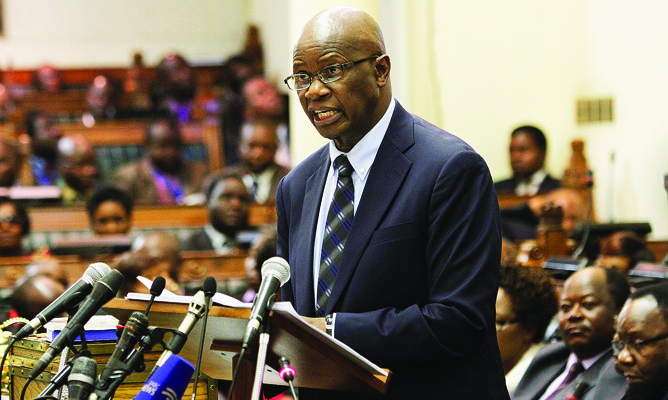
The International Monetary Fund (IMF) on Wednesday let the cat out of the bag, revealing that the government had agreed to a massive cull of civil servants.
While efforts to rationalise the civil service wage bill are welcomed, we are worried that the government is not being open about how it plans to conduct this exercise and is implementing it with a cloak-and-dagger approach.
If there is one thing this government has excelled in, it is the art of mixed messages and the impending job cuts are a prime example of government’s inconsistencies and opaque manner in which it seeks to implement the civil service rationalisation exercise.
We recall only recently that Finance minister Patrick Chinamasa said as part of reducing the wage bill, the government had decided to suspend civil servants’ bonuses. While this was naturally a bitter bill to swallow for public workers, the truth is the government cannot afford bonuses and the economic situation calls for pragmatic decisions.
But no sooner had Chinamasa made this statement than President Robert Mugabe resorted to populism, insisting civil servants would receive their bonuses, despite common sense showing this not to be possible.

Chinamasa, who increasingly looks isolated and the only voice of reason in the Zanu PF government, also spoke of job cuts, something that was refuted by his colleague, Public Service minister Prisca Mupfumira, who says not a single job would be lost, except in disciplinary cases.
Such policy inconsistencies on a matter that affects so many people should be frowned upon and we urge the government to clear the air, as this induces worryingly high levels of anxiety.
- Chamisa under fire over US$120K donation
- Mavhunga puts DeMbare into Chibuku quarterfinals
- Pension funds bet on Cabora Bassa oilfields
- Councils defy govt fire tender directive
Keep Reading
We wonder what ministers and the President discuss at their Cabinet meetings if they cannot agree or put up a united front on such an important and long overdue exercise of rationalising the civil service.
What Zimbabweans need now is clarity in the face of the economic challenges they are facing, instead of the confusion we are being fed.
The time for populist rhetoric is long over and the government must now come up with pragmatic solutions to the problems we face.
In the same vein, government must be transparent in the manner it conducts its audits of public servants, particularly of teachers, who were the first to be affected.
It is unhelpful for auditors to simply go to schools and say because certain teachers were not there, then they would no longer receive their salaries.
It is common cause that people do not report to work for various reasons and it is the duty of the auditors to find out why those teachers did not turn up rather than to assume that they are ghost workers and immediately withhold their pay.
If government is sincere about dealing with ghost workers, then they know where to start. It is an open secret that there are hundreds, if not thousands, of Zanu PF youths receiving salaries from State coffers, yet no one knows what work they do.











